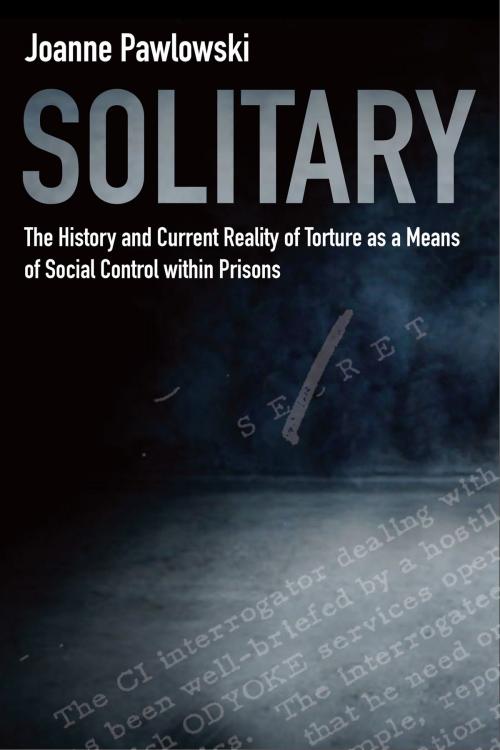Solitary: The History and Current Reality of Torture as a Means of Social Control Within Prisons
Nonfiction, Social & Cultural Studies, Political Science, Politics, History & Theory| Author: | Joanne Pawlowski | ISBN: | 9781301030293 |
| Publisher: | Joanne Pawlowski | Publication: | January 2, 2013 |
| Imprint: | Smashwords Edition | Language: | English |
| Author: | Joanne Pawlowski |
| ISBN: | 9781301030293 |
| Publisher: | Joanne Pawlowski |
| Publication: | January 2, 2013 |
| Imprint: | Smashwords Edition |
| Language: | English |
Over 80,000 inmates in US state and federal prisons are currently housed in solitary confinement. Prisoners in solitary spend 23 hours a day in a room the size of a small bathroom. They receive meals through a slot in the cell door and eat alone near an open toilet; the places where they eat, sleep and defecate are only a few feet apart. Life in isolation is characterized by extreme stress, and frequently leads to suicidal behavior. Prisoners refer to solitary as a place where they must struggle to hold onto their minds and their sense of identity, a place where they are treated as something "less than an animal."
Starting with the Quaker origins of solitary confinement in the eighteenth century, this book examines how solitary has been repeatedly viewed as a means of reprogramming the mind, of traumatizing a prisoner into adopting new beliefs.
Solitary argues that CIA "brainwashing" research of the 1950s may have influenced the design of isolation units in American prisons today.
This book also explores the reality of isolated confinement through interviews with women who have been imprisoned in long-term isolation units in New York State. The book reveals special dangers that women face in solitary, including sexual predation by guards.
Solitary is essential reading for specialists, activists, and the general reader alike.
"A pleasure to read, a marvelous book. The book is compelling, measured and steady in its tone, devastating in its ethical condemnation, well-researched, and elegant in its prose style. I think it is brilliant and beautiful." --Elizabeth Berger, psychiatrist and author
Joanne Pawlowski, a writer based in New York City, has worked as a consultant for Human Rights Watch. She is a graduate of Princeton University and has a Master's degree in Public Administration from Harvard.
Over 80,000 inmates in US state and federal prisons are currently housed in solitary confinement. Prisoners in solitary spend 23 hours a day in a room the size of a small bathroom. They receive meals through a slot in the cell door and eat alone near an open toilet; the places where they eat, sleep and defecate are only a few feet apart. Life in isolation is characterized by extreme stress, and frequently leads to suicidal behavior. Prisoners refer to solitary as a place where they must struggle to hold onto their minds and their sense of identity, a place where they are treated as something "less than an animal."
Starting with the Quaker origins of solitary confinement in the eighteenth century, this book examines how solitary has been repeatedly viewed as a means of reprogramming the mind, of traumatizing a prisoner into adopting new beliefs.
Solitary argues that CIA "brainwashing" research of the 1950s may have influenced the design of isolation units in American prisons today.
This book also explores the reality of isolated confinement through interviews with women who have been imprisoned in long-term isolation units in New York State. The book reveals special dangers that women face in solitary, including sexual predation by guards.
Solitary is essential reading for specialists, activists, and the general reader alike.
"A pleasure to read, a marvelous book. The book is compelling, measured and steady in its tone, devastating in its ethical condemnation, well-researched, and elegant in its prose style. I think it is brilliant and beautiful." --Elizabeth Berger, psychiatrist and author
Joanne Pawlowski, a writer based in New York City, has worked as a consultant for Human Rights Watch. She is a graduate of Princeton University and has a Master's degree in Public Administration from Harvard.















